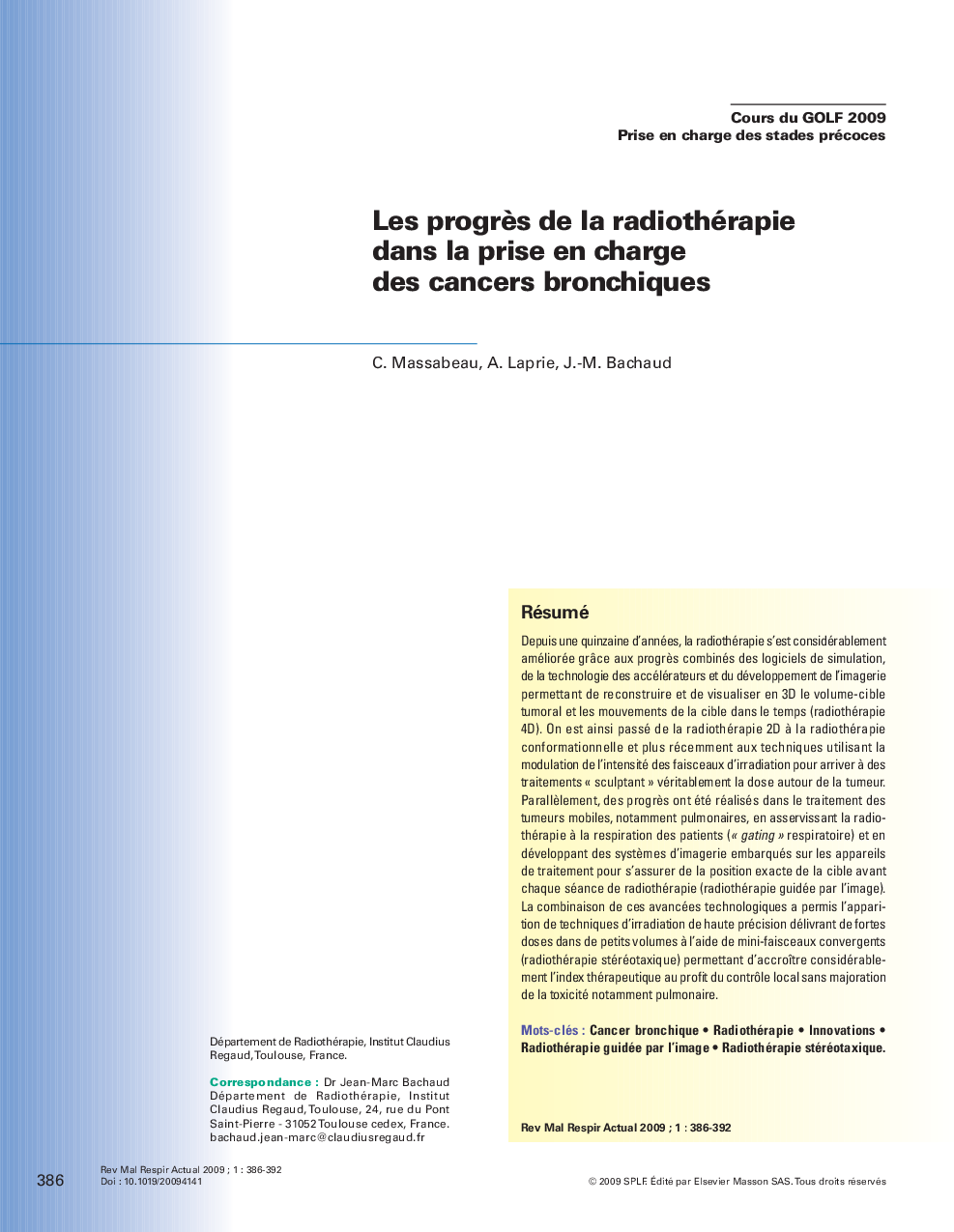| Article ID | Journal | Published Year | Pages | File Type |
|---|---|---|---|---|
| 4216275 | Revue des Maladies Respiratoires Actualités | 2009 | 7 Pages |
Abstract
In their last 15 years advances in computers have allowed parallel advances in imaging technologies. The improvements in imaging have in turn resulted in a higher level of complexity being incorporated into radiotherapy treatment planning systems. As a result of these changes, the delivery of radiotherapy has evolved from therapy designed on two dimensional X-ray images and hand calculations to three dimensional X-ray based images from computerized tomography (CT), incorporating increasingly complex computer algorithms leading to intensity modulated radiation therapy (IMRT). The incorporation of multimodality imaging (PET-FDG) is used increasingly for radiotherapy planning. In addition, greater awareness of the challenges to the accuracy of the treatment planning process, such as problems with set-up error and organ movement, have begun to be addressed systematically, ushering in an era of so-called Four-Dimensional Radiotherapy.
Keywords
Related Topics
Health Sciences
Medicine and Dentistry
Pulmonary and Respiratory Medicine
Authors
C. Massabeau, A. Laprie, J.-M. Bachaud,
